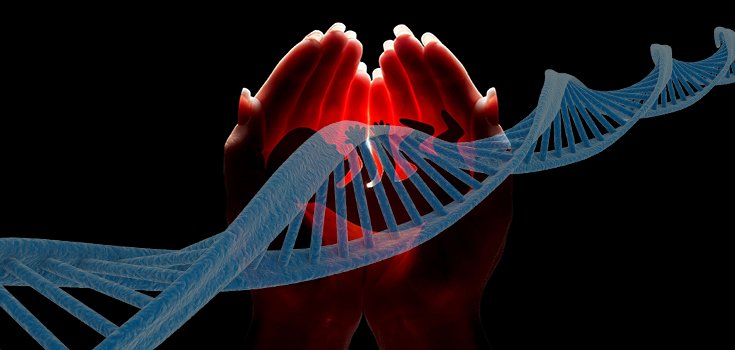U.K. Ethics Body Calls Editing Human Embryos “Morally Acceptable”

An influential group of scientists has deemed editing human embryos “morally acceptable,” essentially green-lighting the creation of designer babies in the future. [1]
The Nuffield Council on Bioethics says in a report that parents looking to “influence the genetic characteristics of their child” could turn to DNA editing – creating designer babies. The wording could influence a change in current law which dictates that scientists may genetically edit human embryos for research purposes, but must destroy them at 14 days. It is also illegal to implant edited embryos into a womb.
The experts said that gene-editing would be used mostly to cure catastrophic diseases, or remove genetic predispositions to cancers and dementia, but the team didn’t dismiss the idea of parents using the technology to choose their child’s height, eye color, and other features. An embryo could even be edited to make the resulting child more intelligent, boosting its chance of future success in life.
Karen Yeung, a professor of law, ethics, and informatics at Britain’s Birmingham University, who chaired the panel, said:
“Whilst there is still uncertainty over the sorts of things genome editing might be able to achieve, or how widely its use might spread, we have concluded that the potential use of genome editing to influence the characteristics of future generations is not unacceptable in itself.”
The council’s judgments have been the driving force behind the legalization of other controversial procedures, including 3-parent babies, in which the DNA of a “second mother” is used to replace faulty code within the cell.
With the influence of the council, the law was changed to allow 3-parent babies, and the first ones are expected to be born later this year, or in early 2019.
Other Experts: “Not so fast!”
The Nuffield Council says that any genetic modifications to human embryos should be guided by 2 principles:
- The welfare of the future individual
- The welfare of society.
The council’s past decisions have been controversial, but leaving the door open to designer babies has drawn disgust and outrage from other experts who insist that allowing parents and scientists to “build” their child like a Lego kit is contrary to the council’s own guiding principles.
Study: CRISPR Gene-Editing Ignites Tons of Unintentional Genetic Mutations
Dr. David King, Director of Human Genetics Alert, said:
“This is an absolute disgrace. We have had international bans on eugenic genetic engineering for 30 years. But this group of scientists thinks it knows better, even though there is absolutely no medical benefit to this whatever. The Nuffield Council doesn’t even bother to say no to outright designer babies. The people of Britain decided 15 years ago that they don’t want GM food. Do you suppose they want GM babies?” [3]

Although it sounds like science fiction now, loosening genome editing laws could eventually lead to a world in which the wealthiest in society divide the social classes even further by creating children who have every physical and intellectual advantage over the children of the “have-nots.”
And it makes no sense that people won’t eat a genetically modified piece of fruit, yet they’re open to allowing scientists to tinker with their future children’s DNA. It is, after all, a relatively new and imperfect science, and if something goes wrong in the process of editing a human embryo, the results could cause lifelong suffering, even death.
In the process of snipping away unwanted DNA, it is possible to make an imperfect cut, or to cut away too much genetic material.
And if scientists are allowed to progress to introducing changes to the germline, in which DNA edits would be passed down to future generations, the ramifications of a mistake will be felt by entire families.
King has already reached a conclusion of his own on the morality of designer babies:
“We must have an international ban on creating genetically engineered babies.” [2]
Sources:
[1] The Telegraph
[2] Reuters
[3] BBC News
